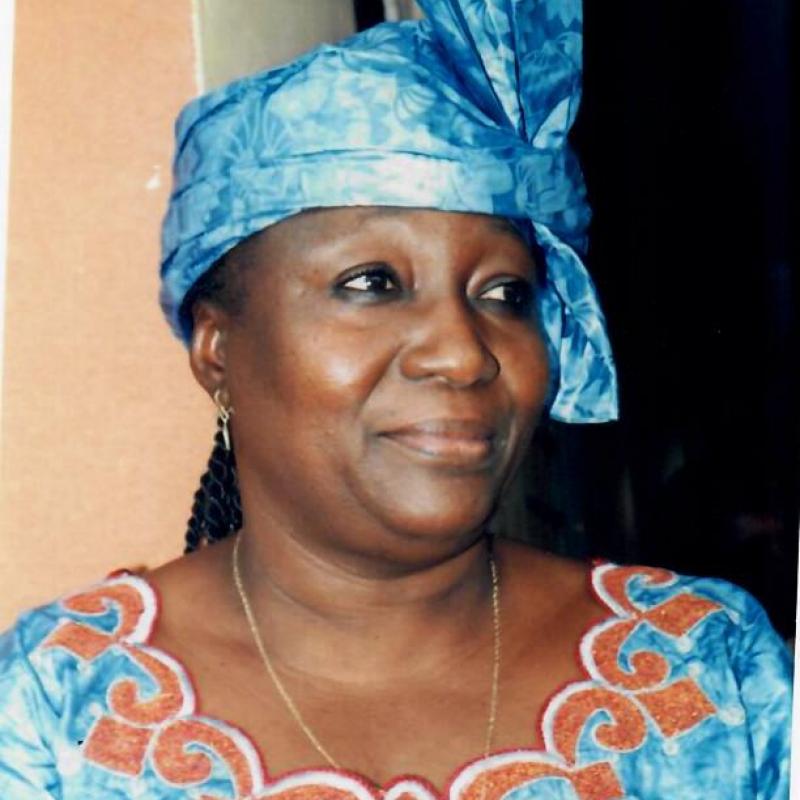Diplômée en sociologie de développement de la Faculté des Sciences Sociales de l’Université de Strasbourg II (France, 1983-1985 ;), madame KONATE Georgette TRAORE est l’une des pionnières de la promotion du genre dans les projets et programmes de développement au Burkina Faso, mais aussi dans la région du Sahel.
Formations, conseil, accompagnement, formulation de programme, évaluation, publications, études spécifiques, plaidoyer ont été les actions majeures qu’elle a menées durant plus de 30 ans d’abord en tant que chercheur au sein de l’université de Ouagadougou (CEDRES, 1985-1987), ensuite en tant qu’assistante conseillère genre au sein de l’Ambassade du Royaume des Pays Bas au Burkina Faso (1994-2000) et en tant que consultante et chef de cabinet conseil (depuis 2000).
Elle a participé à plusieurs études et travaux sur le développement rural en général et spécifiquement sur la prise en compte de la dimension genre dans les programmes et politiques de développement au Burkina Faso, au Mali, au Niger, au Sénégal.

Georgette Konate
Independent consultant Independent consultantDear Jackie,
Just a modest contribution in response to the important and relevant questions you raised on the role and place reserved for women in projects and programs relating to the agricultural sector.
I begin with the last question to say that taking into account the gender theme is essential if we want to achieve the objectives: induce positive and lasting effects and impact for all in the communities with which we work as stakeholders.
In my opinion, the gender approach is the participatory approach par excellence in terms of development, if we give ourselves the necessary means for its proper implementation (ensuring its integration throughout the project and program cycle; using confirmed expertise on the issue; ensuring that all activities contributing to the management of this theme are budgeted, etc.).
Regarding lessons learned; the effects and impacts of projects and programs for women as well as the various recommendations made on this subject; I would recommend, as examples, to refer particularly to the evaluation reports of the FAO country programs in Burkina and Niger; carried out under the aegis of OED in recent years. For Burkina Faso, the evaluation covered the period 2010-2015. While for Niger the evaluation extended over the period 2011-2016. The issues raised in this discussion were raised to some extent in the terms of reference for this exercise.
Answers to certain questions on the participation and empowerment of women can also be drawn from the rich documentation produced by FAO and its partners on the "DIMITRA Listening Club" tool used in Niger as well as in Senegal, (for cases that I have had the opportunity to visit through evaluations in recent years).
Sorry to have been general in my reaction but I think that for this theme it will be more useful to use real documentary sources to have more precise answers.